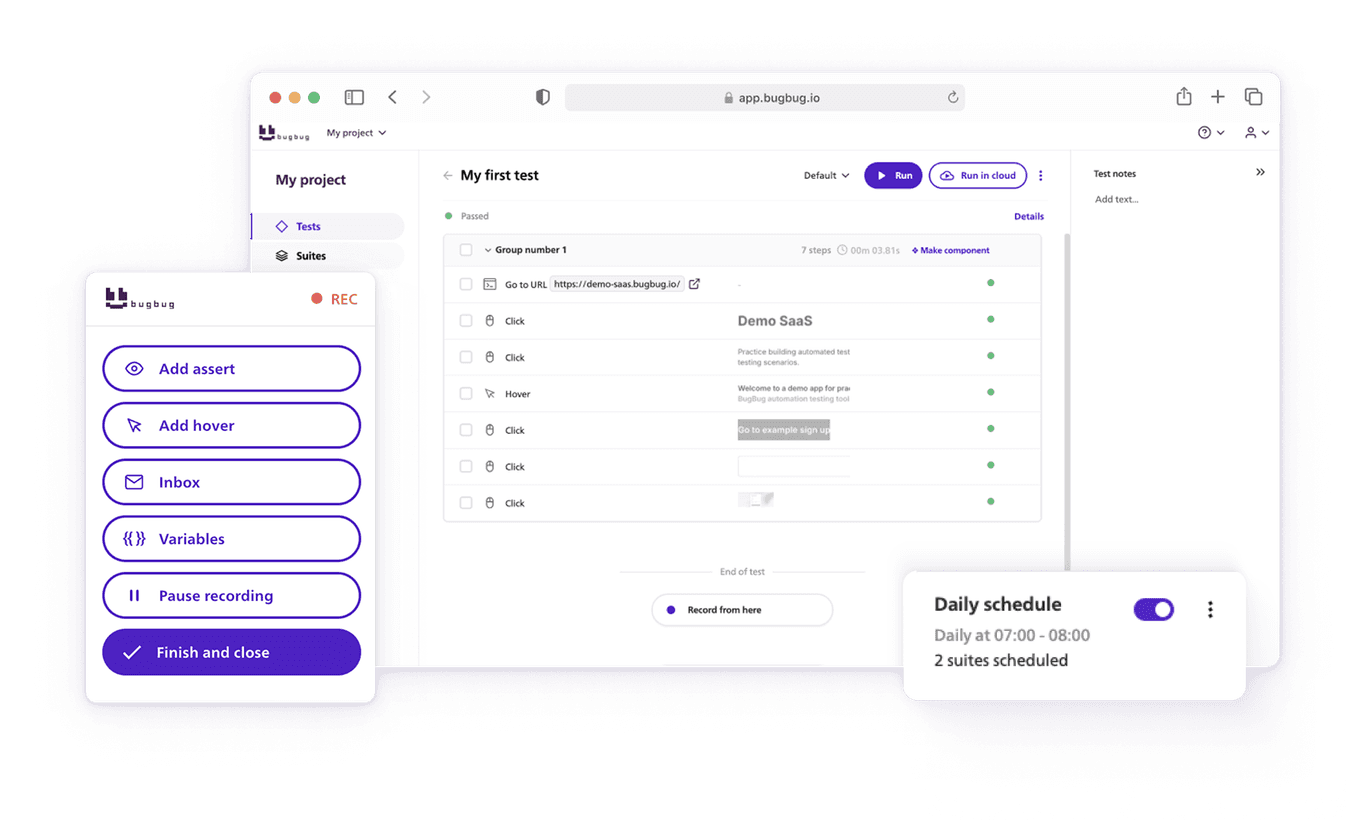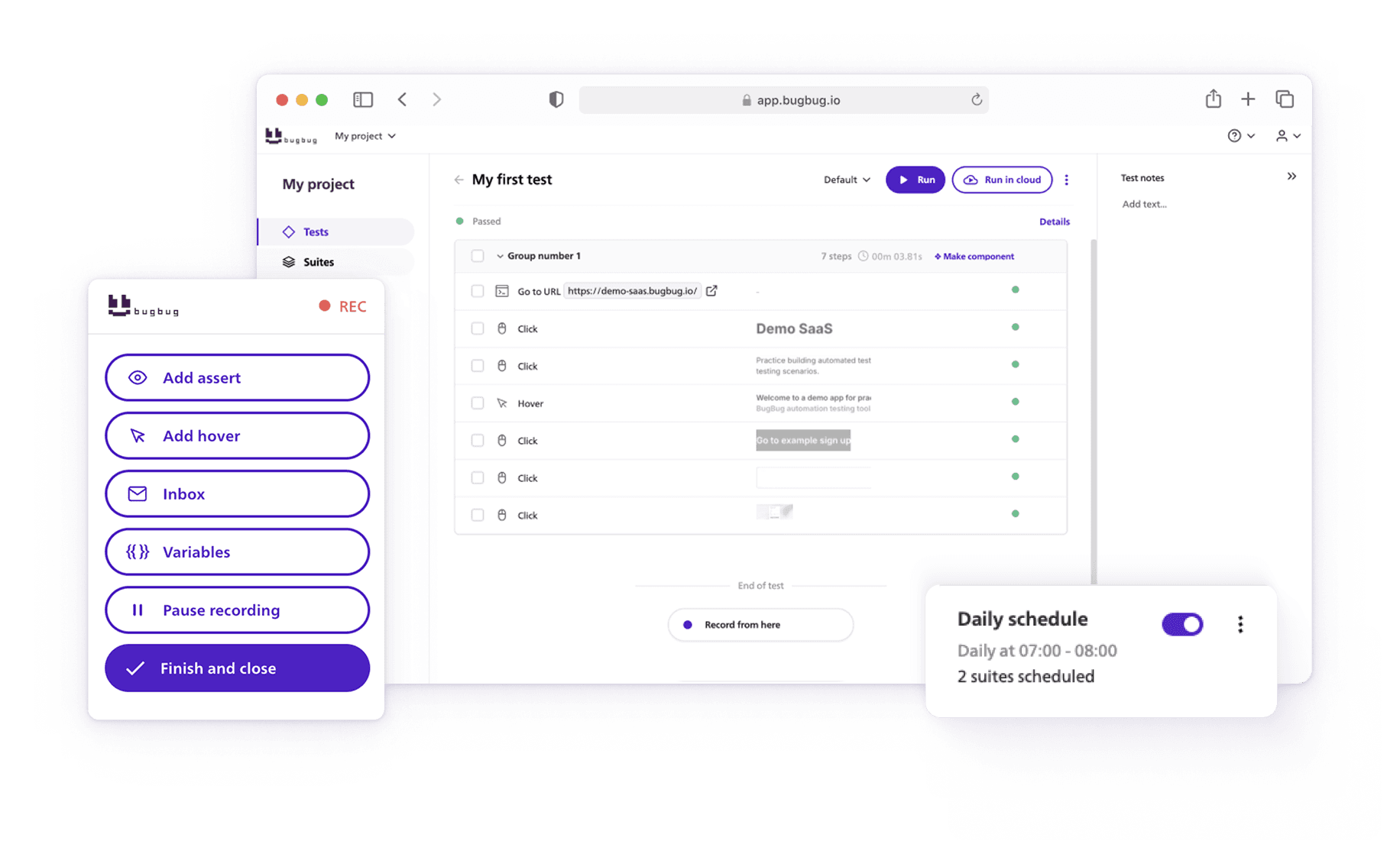The work of a manual tester is not always as appreciated as it should be. Often, words like “testing” boil it down to (seemingly) boring activities following a scenario. This is a superficial opinion. Check the 10 reasons why this profession can be recognized as surprisingly interesting.
- The job of a manual tester = creativity that many marketing guys could dream of
- Manual testing is heaven for an analytical mind
- A manual tester criticises as much as he/she likes
- A manual tester stands for a “great communicator”
- Testing and… empathising
- People keen on accuracy make good testers
- As a manual tester you use your organisational skills
- A manual tester’s continued growth
- As a tester you are responsible for the product’s quality
The job of a manual tester = creativity that many marketing guys could dream of
As a manual tester you get to know the product and create testing scenarios. This is the part of the work where you can unleash your creativity: you come up with the biggest possible number of ways in which the user can make use of your product and where an error can be detected. Even if you are a natural when it comes to looking for “weak points” in an application, you go beyond it and foresee the user’s behaviour and the operation of the entire software. Looking at the scenarios you have created, many people could say “there is no way this will happen!”. How about you? When your scenario shows an unexpected error, you simply flick an invisible speck of dust off your shoulder.
Automate your tests for free
Test easier than ever with BugBug test recorder. Faster than coding. Free forever.
Get started
Manual testing is heaven for an analytical mind
Analytical thinking and drawing conclusions will come in handy at every stage of your work: since the moment you get acquainted with the technical specification and the product’s application up to writing the mentioned scenarios.
A good tester has the skill of inductive thinking i.e. drawing conclusions on the basis of pieces of information coupled with deductive thinking (from the general to the detailed). A tester’s role is not limited to checking how specific functionalities work; a tester also places them in a broader context – the product and its trade environment. Questions like “Is this the best solution? Does the design meet the standard? Can you simplify it?” are elements of daily work.
A manual tester is not a person who follows the instructions blindly but rather, he/she creates them respecting the latest standards and sometimes even challenging them.
A manual tester criticises as much as he/she likes
Did you dream as a child of being a literary, theatrical or film critic? Even if you did not, as a manual tester you have an opportunity to show the part of your personality that enjoys pinpointing mistakes and highlighting imperfections. There is more: in this job it will be more than welcome (with reference to the tested application, not your team mates, that is )!
A manual tester stands for a “great communicator”
Did you know why Ronald Reagan was dubbed “the great communicator”? For his rhetoric skills in general and one talent in particular. Recognizing and rewarding unique talents, much like Reagan's communication skills, is a cornerstone of employee rewards and recognition programs that aim to motivate and celebrate individual contributions in the workplace.
It actually helped him to be elected president. In 1980, during a TV debate with Jimmy Carter, Reagan addressed all Americans directly and during his air time he looked straight into the camera, making an impression that he was speaking to each and every viewer individually. How does this connect with a tester’s responsibilities?
As part of your work, you will also have many opportunities to look someone in the eye and say something harsh, e.g. to show a code error to a developer or to ask a project manager for extra time for testing if the situation requires it.
Rest assured that these will not always be nice conversations… It is good to know because many people perceive a tester as an individual who is knowledgeable about logs and only produces reports.
However, this job requires a lot of interaction with people at various levels (especially when your company uses the scrum methodology) and here communication skills are much coveted. Assertiveness (ability to present your opinion without hurting other people’s feelings) is worth its weight in gold.
Automate your tests for free
Test easier than ever with BugBug test recorder. Faster than coding. Free forever.
Get started
Testing and… empathising
I do not mean only empathy with a developer who, following your remarks, needs to repair the bugs 😉. As a tester, you empathise mainly with the user who will ultimately make use of the product you are testing. You try to best understand the user’s needs and train of thoughts. Your aim is to make the application as easy to handle as possible. This is yet another soft skill that you can use in your work.
People keen on accuracy make good testers
If you are applying for a job of a manual tester, perfectionism will certainly be perceived as your strength during the job interview. Accuracy and care for the detail are prerequisites for being a tester; otherwise you might miss an important aspect of an application’s functioning. As a result of this omission, the company could lose its good reputation and considerable amounts of money.
As a manual tester you use your organisational skills
You do not have unlimited time for testing; in many cases, there is less time than you hope. Your planning skills and effective use of time come in handy. Time pressure is visible not only in Jira; it also affects the people managing a project.
A manual tester’s continued growth
As a tester you need to keep up with the changing trends and technologies, also as part of your specialization. There is no room for stoppages or boredom because every day, new information is disseminated, new courses and ideas originated. When implemented, sometimes they challenge the assumptions about reality.
Every tester needs to know the product he/she handles and this is no mean feat: you need to know the rules of operation and find out the solutions offered by the competitors plus analyse in depth the technical documentation, trace the logs etc. A tester’s work requires regular updates.
As a tester you are responsible for the product’s quality
By clicking on “Test passed” in Jira, you confirm that a specific functionality and, by extension, the entire product, meets the requirements. You are some sort of a quality controller and this is more than just checking if an application works as planned. As a result of your work, a product wins market trust while its effectiveness improves the corporate owner’s reliability.
10. The position of a manual tester is the first step; there is always more
Later on, you can branch out into automatic testing, QA or even programming. The more testing tools, technologies and programming languages you know the better. Consequently, you strengthen your position on the job market. Your opportunities for growing, learning and enhancing your skills are limitless.



